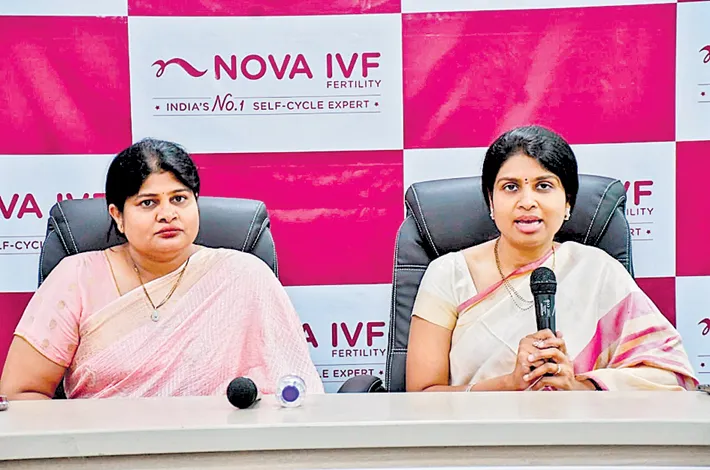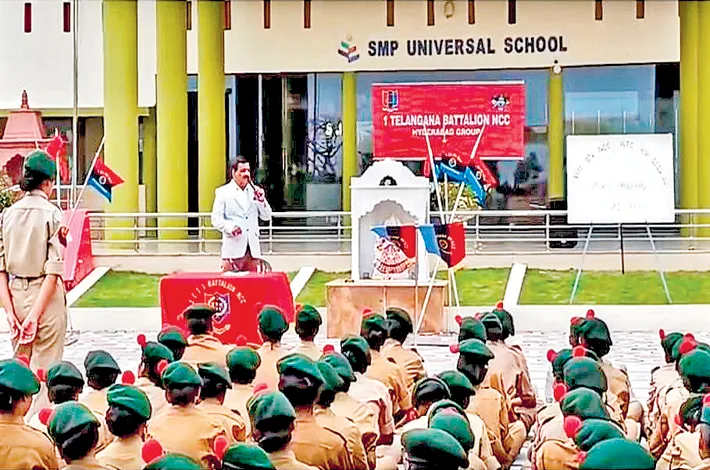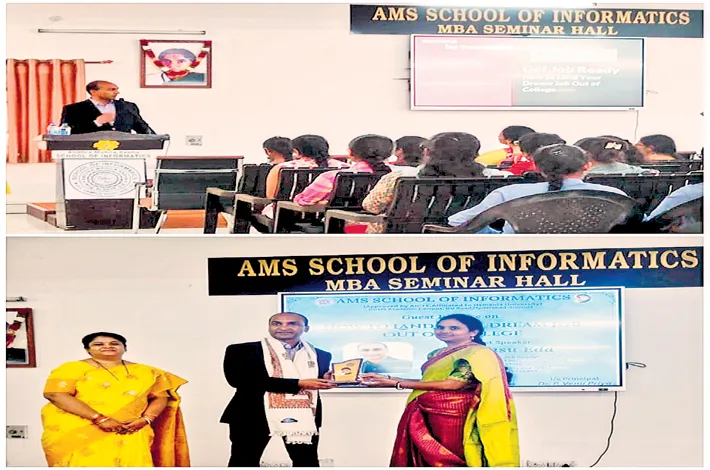Preparing Students for a Better, Fruitful Tomorrow
23-09-2025 12:00:00 AM

This year, the International Baccalaureate (IB) marks its 50th anniversary in India. In an exclusive conversation with the Free Press Journal, Mahesh Balakrishnan, Development Senior Manager – India, IB Board, spoke about the evolution of IB in the country, its student-centric approach, the growing popularity of IB schools beyond metros, and how the board continues to prepare Indian students for both national and global higher education. He also shared insights on the IB’s alignment with India’s National Education Policy, inquiry-based learning, and the future of international education in India.
FPJ: What’s new with the IB board? What’s coming up?
Balakrishnan: This year, we’re celebrating 50 years of IB in India. The IB first came to the country in 1976 with Kodai International School. Many people still see IB as a new board, but while we constantly evolve and set trends, we’ve actually been here for half a century. We’ve been able to stay relevant because of that ability to adapt and innovate.
FPJ: Over these 50 years, has anything significantly changed? And what’s next for IB after this milestone?
Balakrishnan: What has remained consistent is our student-centric approach. That’s what IB has been known for across these decades—developing learners and using education as a way to make the world a better place. We’ll continue to build on that in the years to come.
Of course, education itself is undergoing rapid changes, especially since the COVID-19 pandemic. Future skills, tomorrow's jobs, and India’s new education policy are all shaping the sector. IB stays closely aligned with these shifts. Being a global and respected voice in education, we’ve been able to adapt to these changes effectively, and we’ll keep doing so in the next 50 years.
FPJ: Could you explain how the IB curriculum develops students’ skills and competencies?
Balakrishnan: The IB doesn’t focus on rote answers or one-line responses. Instead, we nurture critical thinking and problem-solving. Students are encouraged to ask “why” and “how”, not just “what”. We emphasise experiential learning, research skills, working in multicultural environments, and striking a balance between academics and community engagement. Altogether, this creates a rich and exciting student journey.
FPJ: How does this compare to the more traditional systems like state boards or CBSE?
Balakrishnan: At the end of the day, all boards aim to deliver knowledge, and each does it in its own way. Where IB is different is in our focus on wisdom rather than memorisation. Students don’t just learn facts—they learn concepts, ideas, and most importantly, how to apply them in real life. That’s the core difference between IB and more traditional boards.
FPJ: How does the IB board prepare Indian students for the global stage?
Balakrishnan: IB is both local and global. It equips students to thrive not just abroad but also in India as higher education here evolves.
In traditional schooling, students are often sheltered—teachers and principals know them personally. But as they approach senior grades in IB, they transition into self-directed learners. That prepares them for higher education and the professional world.
Universities today—whether in India or overseas—are looking for students who can handle conflicting ideas, study independently, research deeply, and think critically. These are exactly the skills built into IB through applied, conceptual, and project-based learning.
For instance, IB has the
Extended Essay, where students write an original 4,000-word paper, and Theory of Knowledge, where they engage in a 1,600-word critical dialogue. These are not just assignments—they’re transferable skills that serve students well in higher education, wherever they go.
FPJ: IB is known for its inquiry-based learning approach. How does this improve outcomes compared to the rote learning common in Indian schools?
Balakrishnan: Some amount of memorisation is fine; I wouldn’t say it’s bad. But rote learning alone is limited—you prepare for the exam, write it, and forget it. Inquiry-based learning is different. You ask why something happens, how it works, and what it’s for. That process helps you retain knowledge because you’ve explored it yourself. Students work on problem statements, investigate, experiment, and come to conclusions. This kind of hands-on learning leads not just to retention but also to wisdom—because you know how to apply what you’ve learnt.
FPJ: In recent years, IB schools in India have grown rapidly—almost 44% in the last five years. What do you think is driving this surge?
Balakrishnan: There are a few reasons. First, there’s greater awareness about IB. Second, the new education policy has brought more focus on alternative approaches. And third, parents today are more conscious—they don’t always want their children to go through the same kind of learning they did. They’re looking for differentiated learning, and once they experience IB, many families genuinely enjoy it. Word of mouth has played a big role in spreading that interest. Another factor is schools themselves. When a school has followed a national or state board for many years, they often ask themselves, 'What new value can we bring to our community?' Adopting IB becomes that answer. And of course, Indians are global travellers now. Many school owners have children studying abroad. They see IB graduates in international universities bringing fresh perspectives, and that inspires them to bring IB into their own schools.
FPJ: As India becomes IB’s second-largest market, how is the board preparing for the growing demand?
Balakrishnan: IB is ready for India. We bring the best of global education, but we also have a strong network of educators and schools here who support new schools as they come on board.
Parents in India have accepted IB because they see its value. Beyond academic rigour, IB instils research skills, inquiry, community service, critical thinking, and problem-solving. And since education is constantly evolving globally, IB adapts with those changes—whether it’s mobility, technology, or skills of the future.
Earlier, many parents chose IB because they wanted their children to go abroad for higher studies. That remains true, but now with more international universities opening campuses in India, IB education is also being recognised as a strong pathway for students who want to stay in India but still have access to a globally benchmarked education.
FPJ: With the Western Australia Certificate of Education now in India at a lower fee than IB, how do you see this impacting IB’s appeal to students and parents?
Balakrishnan: Competition is always welcome, and in fact, it helps. It creates more awareness about the IB and encourages more schools and families to consider it. Schools also have their own journeys—they need to meet the needs of their communities. If you look at how things evolved earlier, many schools that started as state board or matriculation schools later moved to CBSE, and then some adopted IB or Cambridge.
The Western Australian curriculum may appeal to schools that are a little more risk-averse and want to try something different first. But as they gain confidence, many of them may eventually move to an established board like the IB, which has been around for over 50 years. Unlike a curriculum tied to one destination country, like Australia, the IB is focused on preparing students for the entire global higher education market. That makes a big difference.








